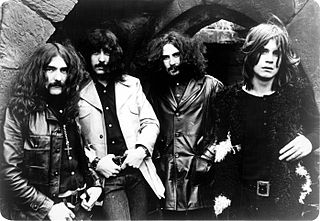
Black Sabbath were an English rock band formed in Birmingham in 1968 by guitarist Tony Iommi, drummer Bill Ward, bassist Geezer Butler and vocalist Ozzy Osbourne. They are often cited as pioneers of heavy metal music. The band helped define the genre with releases such as Black Sabbath (1970), Paranoid (1970) and Master of Reality (1971). The band had multiple line-up changes following Osbourne's departure in 1979 and Iommi is the only constant member throughout their history.

John Michael "Ozzy" Osbourne is an English singer, songwriter, and television personality. He rose to prominence during the 1970s as the lead vocalist of the heavy metal band Black Sabbath, during which period he adopted the nickname "Prince of Darkness".
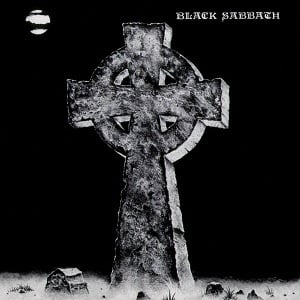
Headless Cross is the fourteenth studio album by English heavy metal band Black Sabbath. Released on 24 April 1989, it was the group's second album to feature singer Tony Martin, the first to feature drummer Cozy Powell, and the only album with bassist Laurence Cottle.
The new wave of British heavy metal was a nationwide musical movement that started in England in the mid-1970s and achieved international attention by the early 1980s. Journalist Geoff Barton coined the term in a May 1979 issue of the British music newspaper Sounds to describe the emergence of new heavy metal bands in the mid to late 1970s, during the period of punk rock's decline and the dominance of new wave music.
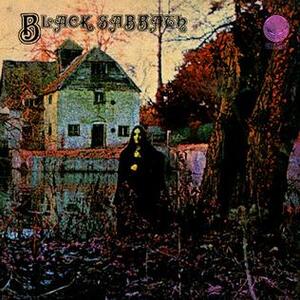
Black Sabbath is the debut studio album by English heavy metal band Black Sabbath, released on 13 February 1970 by Vertigo Records in the United Kingdom and Warner Bros. Records in the United States on 1 June 1970. The album is widely regarded as the first heavy metal album, and the opening track, "Black Sabbath", has been referred to as the first doom metal song.

Anthony Frank Iommi is a English musician. He co-founded the pioneering heavy metal band Black Sabbath, and was the band's guitarist, leader and primary composer and sole continuous member for nearly five decades. Iommi was ranked number 25 in Rolling Stone magazine's list of the "100 Greatest Guitarists of All Time".
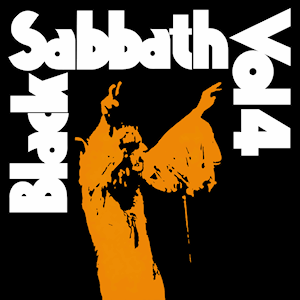
Vol. 4 is the fourth studio album by English rock band Black Sabbath, released in September 1972. It was the first album by Black Sabbath not produced by Rodger Bain; guitarist Tony Iommi assumed production duties. Patrick Meehan, the band's then-manager, was listed as co-producer, though his actual involvement in the album's production was minimal.
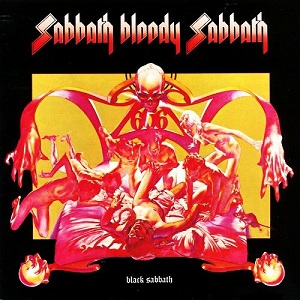
Sabbath Bloody Sabbath is the fifth studio album by English heavy metal band Black Sabbath, released in November 1973. It was produced by the band and recorded at Morgan Studios in London in September 1973. The writing process for the album, which began in Los Angeles, California, was initially hampered in part by the band's substance abuse and fatigue following their 1972–1973 world tour in support of their previous album, Vol. 4. The band then relocated to Clearwell Castle in the Forest of Dean, Gloucestershire, England, where guitarist Tony Iommi conceived the main riff of what became the album's title track and lead single.

Born Again is the eleventh studio album by English heavy metal band Black Sabbath. Released in September 1983, it is the only album the group recorded with lead vocalist Ian Gillan, best known for his work with Deep Purple. It was also the last Black Sabbath album for nine years to feature original bassist Geezer Butler and the last to feature original drummer Bill Ward, though Ward did record a studio track with the band fifteen years later on their 1998 live album Reunion. The album has received mixed reviews from critics, but was a commercial success upon its 1983 release, reaching No. 4 in the UK charts. The album also hit the top 40 in the United States. In July 2021, guitarist and founding member Tony Iommi confirmed that the long lost original master tapes of the album had been finally located, and that he was considering remixing the album for a future re-release.

William Thomas Ward is an English drummer, singer and songwriter. He was a co-founder and the original drummer for the heavy metal band Black Sabbath. Ward helped found Black Sabbath in 1969 alongside bandmates Ozzy Osbourne, Tony Iommi (guitarist) and Geezer Butler (bass).

Heaven and Hell is the ninth studio album by English heavy metal band Black Sabbath, released on 18 April 1980. It is the first Black Sabbath album to feature vocalist Ronnie James Dio, who replaced original vocalist Ozzy Osbourne in 1979.

Technical Ecstasy is the seventh studio album by English heavy metal band Black Sabbath, produced by guitarist Tony Iommi and released on 25 September 1976 by Vertigo Records. The album received mixed reviews from critics but was a commercial success, peaking at number 13 on the UK Albums Chart and number 51 on the US Billboard 200 Album chart, later being certified Gold by the RIAA in 1997.

Reunion is a live album by English heavy metal band Black Sabbath, released on 19 October 1998. As implied by the title, the album features a reunion of the original Black Sabbath lineup of vocalist Ozzy Osbourne, guitarist Tony Iommi, bassist Geezer Butler and drummer Bill Ward. The album represents the first new release featuring that version of the group since 1978's Never Say Die! and Osbourne's subsequent firing the following year. Black Sabbath received their first ever Grammy Award in 2000 for the live recording of "Iron Man" taken from Reunion.
"Hole in the Sky" is a song by the English heavy metal band Black Sabbath. It is the opening track on their sixth studio album, Sabotage, released in 1975.
"Symptom of the Universe" is a song by British heavy metal band Black Sabbath from their 1975 album Sabotage. The song was an influence on the development of thrash metal.
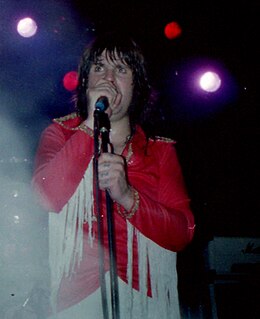
The Blizzard of Ozz Tour was the debut concert tour as a solo artist by British vocalist Ozzy Osbourne, who had been fired from the English group Black Sabbath a year prior. The tour started on September 12, 1980 and concluded on September 13, 1981.
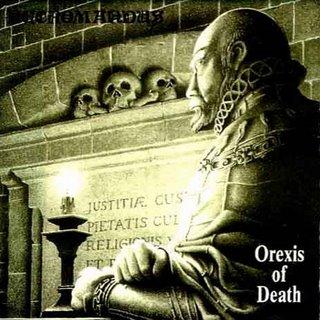
Orexis of Death is the debut album by English rock band Necromandus. It was recorded in 1973 under the supervision of Black Sabbath guitarist Tony Iommi, but was shelved due to Barry Dunnery's departure from the band and wasn't released until 1999.

Frank Hall is an English musician and drummer. He was a founder member of the pioneering 1960s-1970s rock band Necromandus, widely hailed as the second Black Sabbath, and by Melody Maker as "Black Sabbath play Yes". After Necromandus, Hall collaborated with Ozzy Osbourne's first solo project after leaving Black Sabbath.













